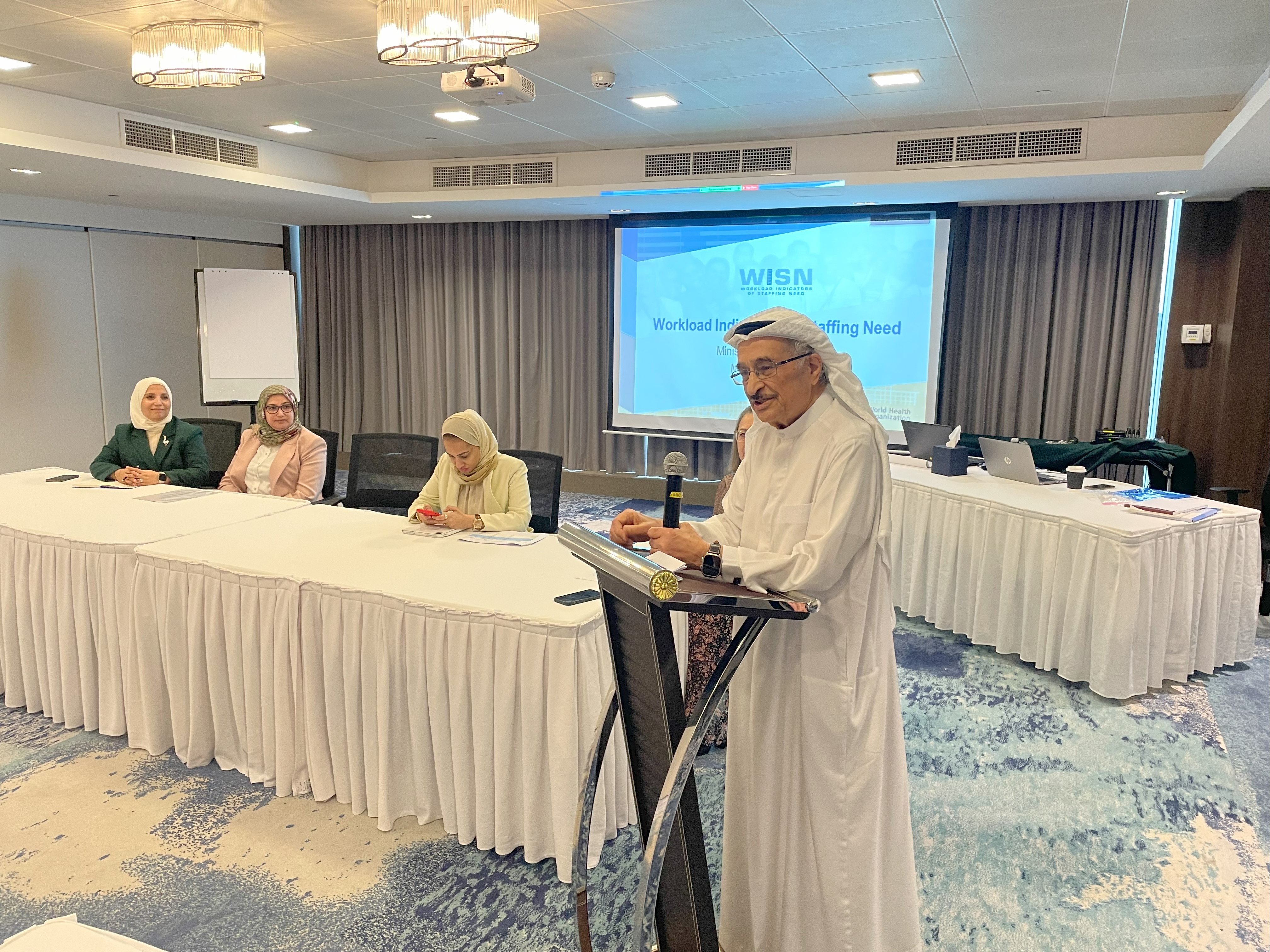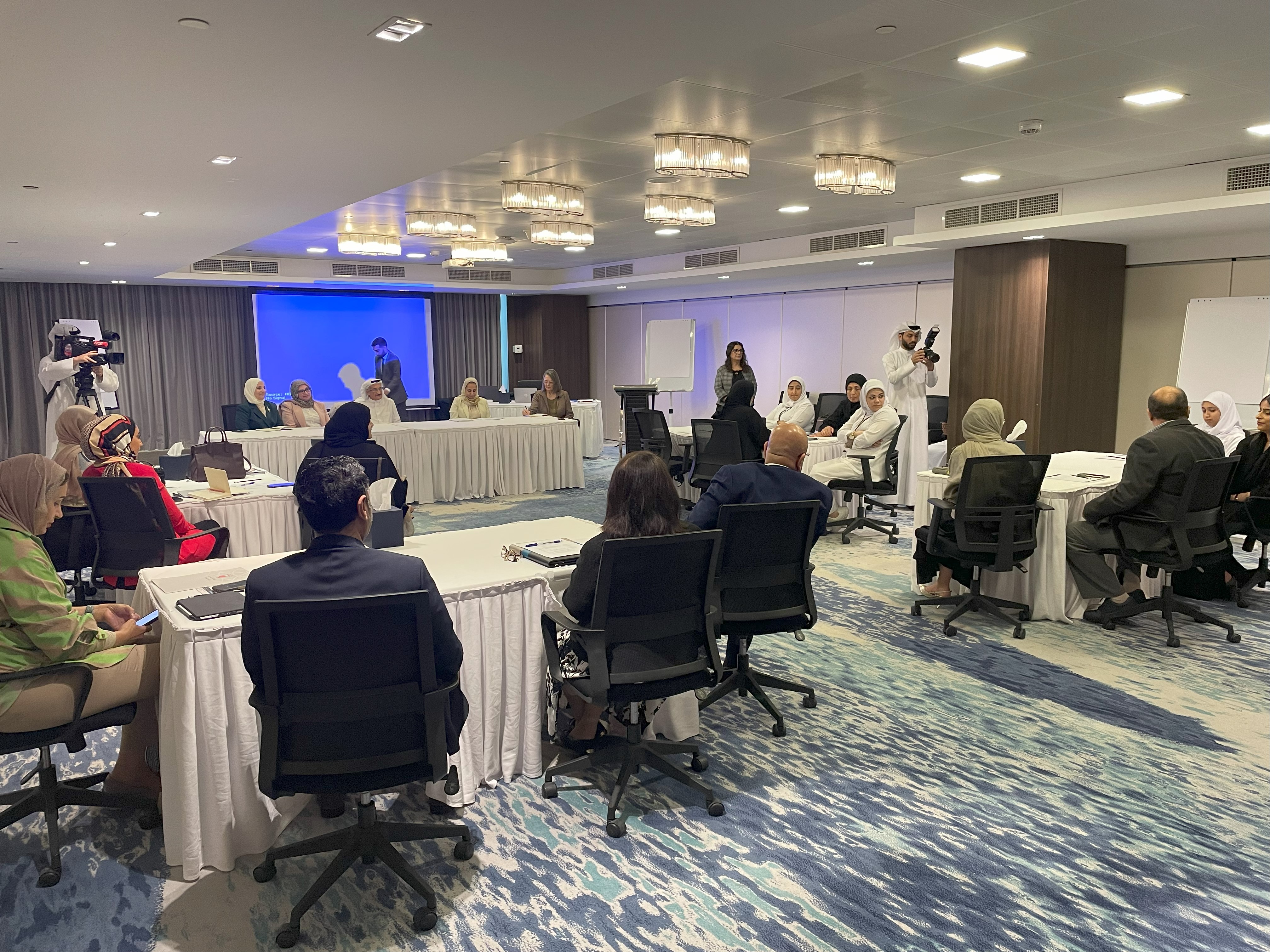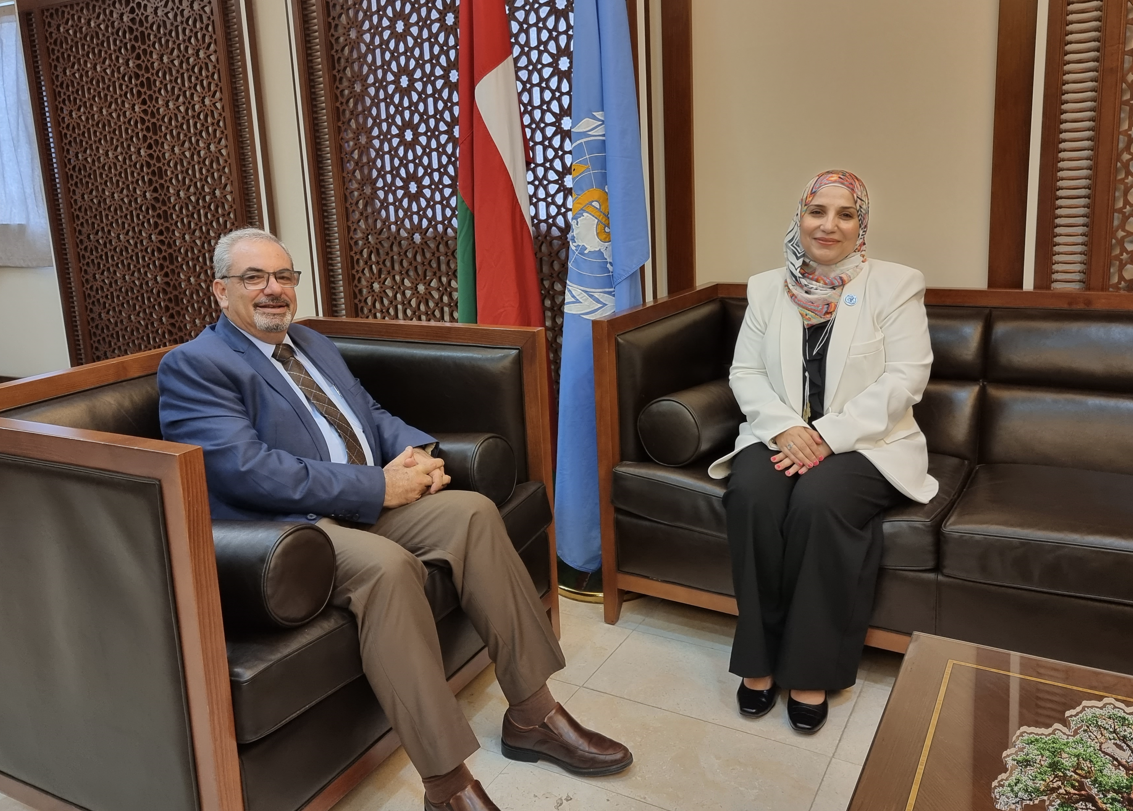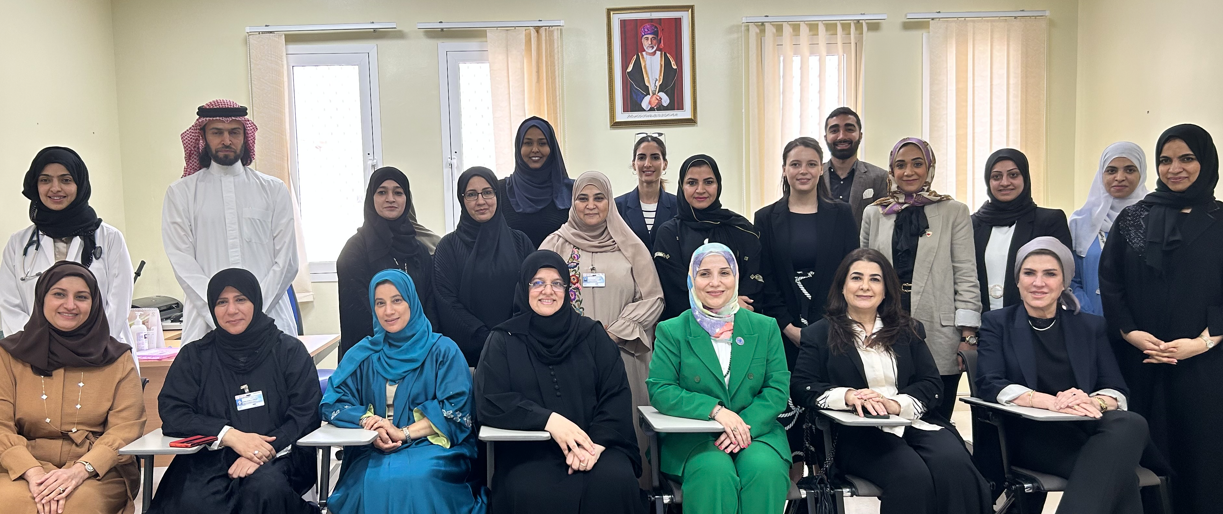2 August 2023 – A 2-day mission was conducted in Muscat, Oman, on 30–31 July 2023 to exchange knowledge, experiences and best practices on the use and implementation of the workload indicators of staffing needs (WISN) tool between the 2 neighbouring countries of Bahrain and Oman.
The mission follows a WISN pilot workshop that was conducted in Bahrain in March 2023 to introduce the WISN methodology and build the capacity of technical staff.
Workload indicators of staffing needs
Bahrain is undergoing health care system reform in line with the Government's plan (2023–2026). Under the lead of the Supreme Council of Health, in cooperation with the Ministry of Health and primary health care (PHC) centres, the WHO Country Office in Bahrain provided technical support by conducting a capacity-building workshop on WISN in Manama, Bahrain, on 26–30 March 2023 to build the capacity of the technical team on the WISN methodology to pilot in 6 PHC facilities.
 A presenter delivers opening remarks at the WISN capacity-building workshop in Manama, Bahrain
A presenter delivers opening remarks at the WISN capacity-building workshop in Manama, Bahrain
The WISN application is a software tool developed by WHO to improve country-level health workforce planning by:
developing and defining staff needs and standards for PHC facilities, in light of the ongoing reform in Bahrain;
determining how many health care providers are required to address the health care needs in a given facility;
estimating staffing requirements by cadre to deliver expected services of a facility based on workload.
The WISN technical team is in charge of the day-to-day implementation of WISN led by Dr Zahra Bader, Strategic Health Planning Advisor, Supreme Council of Health, and includes experts from PHC centres to pilot the implementation of WISN in 2 cadres (doctors and nurses) in 6 PHC facilities.
The main challenge faced in using WISN was the lengthy process of data collection to input into the software for recording, analysing and reporting data related to staffing status and needs at health facilities.
 Participants in the WISN capacity-building workshop in Manama, Bahrain
Participants in the WISN capacity-building workshop in Manama, Bahrain
WISN mission to Muscat, Oman
On day 1, Dr Tasnim Atatrah, WHO Representative in Bahrain, and the WISN technical team, under the leadership of the Supreme Council of Health, met with Dr Jean Yaacoub Jabbour, WHO Representative in Oman.
 Dr Tasnim Atatrah, WHO Representative in Bahrain meets with Dr Jean Jabbour, WHO Representative in Oman
Dr Tasnim Atatrah, WHO Representative in Bahrain meets with Dr Jean Jabbour, WHO Representative in Oman
The Ministry of Health of Oman, represented by H.E. Dr Fatima Al Ajmi, Undersecretary for Administrative, Financial, and Planning Affairs, met with both teams to provide an overview of the implementation of WISN in Oman, including best practices, main challenges and future recommendations.
On day 2, a field visit was conducted to a PHC facility in the Muscat governorate to share experiences on the ground on data collection, analysis and implementation.
 Photo of participants during the WISN field visit
Photo of participants during the WISN field visit
Dr Zahra Bader, Health Strategic Planning Consultant, Supreme Council of Health, said that, "Under the leadership of the Supreme Council of Health, in cooperation with the Ministry of Health and PHC centres, WISN has been implemented as a pilot in 6 PHC facilities in Bahrain to identify health workforce requirements at the PHC level. The delegation gained firsthand experience and insight into the Ministry of Health of Oman's journey in implementing WISN, along with sharing priorities and how to mitigate challenges faced in its implementation. The WISN technical team also looked closely at our neighbouring country's evidence-based results and their impact in supporting planning for human resources for health in the country.
We would like to express our gratitude and appreciation to the WHO country offices in Bahrain and Oman for coordinating this mission. We look forward to this visit being an extension of the joint cooperation between Bahrain and Oman, and WHO”, noted Dr Zahra Bader.
In light of the progress of WISN implementation in the country, the Supreme Council of Health will continue to seek capacity-building opportunities to strengthen and effectively implement WISN across all cadres in primary, secondary and tertiary care settings in Bahrain. The WISN methodology produces evidence-based results, which will help support the planning and guiding of strategic decisions for human resources for health in the country.
“The successful mission provided an opportunity for cross-country exchange, learning, and collaboration between the Bahrain and Oman teams working together towards Health for All by All. And I wish to extend special thanks to the WISN technical team under the lead of the Supreme Council of Health, in cooperation with the Ministry of Health and PHC centres, and gratitude for the endless support from the Ministry of Health and WHO in Oman. The mission benefited from proactive participation and insightful discussions, stated Dr Tasnim Atatrah, WHO Representative in Bahrain.
Related links
Workload indicators of staffing need (WISN) user manual
An estimation of staffing requirements in primary care in Oman using the WISN method


